|
||||
Shocked Irons |
| Return to Contents |
| Back...Next |
| Preterrestrial
secondary structures seen in iron meteorites - Neumann lines (bands),
kamacite/taenite/cohenite/troilite recrystallization, deformation, and more -
are mostly shock-related. At some point in an iron meteorite's distant history, violent collisions between asteroids and planetoids would have occurred. Some, particularly violent, would eventually have disrupted the parent body. In a differentiated body, this would have exposed the iron/nickel core, shattering it into fragments. From this, it is reasonable to conclude that all iron meteorites would have, to varying degrees, indications of shock-altering events in their primary structures. These are referred to as secondary structures. The following are images of some shock-related secondary structures found in iron meteorites. One of the most reliable indicators of shock is the hardness of the metallic meteoritic metals. After the primary cooling period, kamacite and taenite are likely to have been around 155 HV (Vickers). However, after shock hardening, values of 325 and peaks of 475 have been observed in deformed kamacite and taenite (Buchwald, 1975). This intricate process allows us to infer the severity of shock in most cases. |
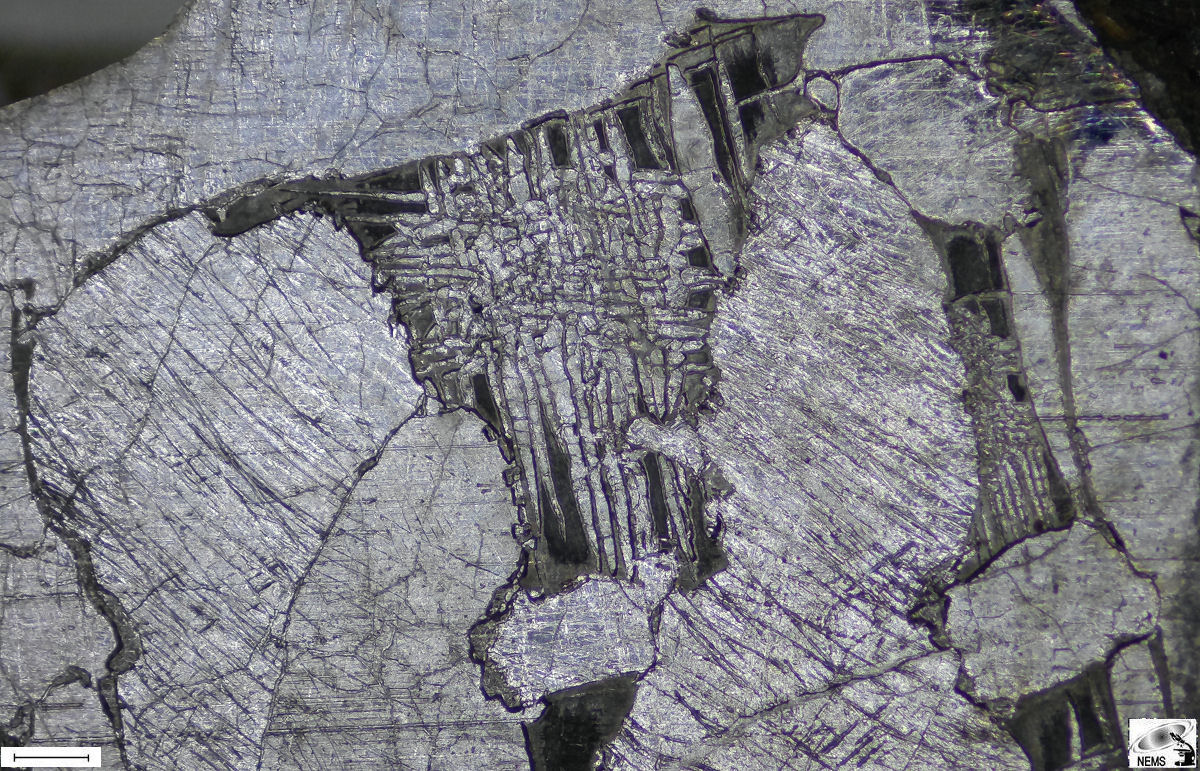
| Meteorite, Tamarugal |
| Classification, Iron, IIIAB |
| Shock-hatched kamacite, plessite field - basket weave kamacite, subboundries in kamacite lamellae. |
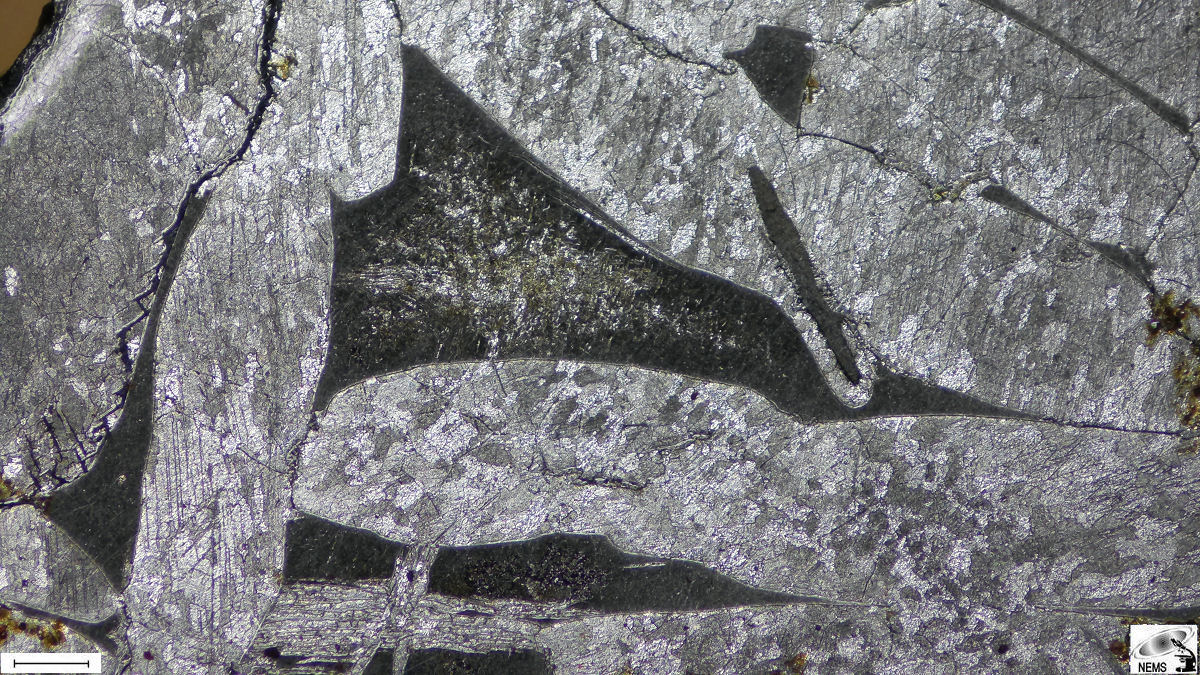
| Meteorite, Paloduro |
| Classification, Iron, IIIE |
| Strongly shocked, melted troilite, recrystallized kamacite. |
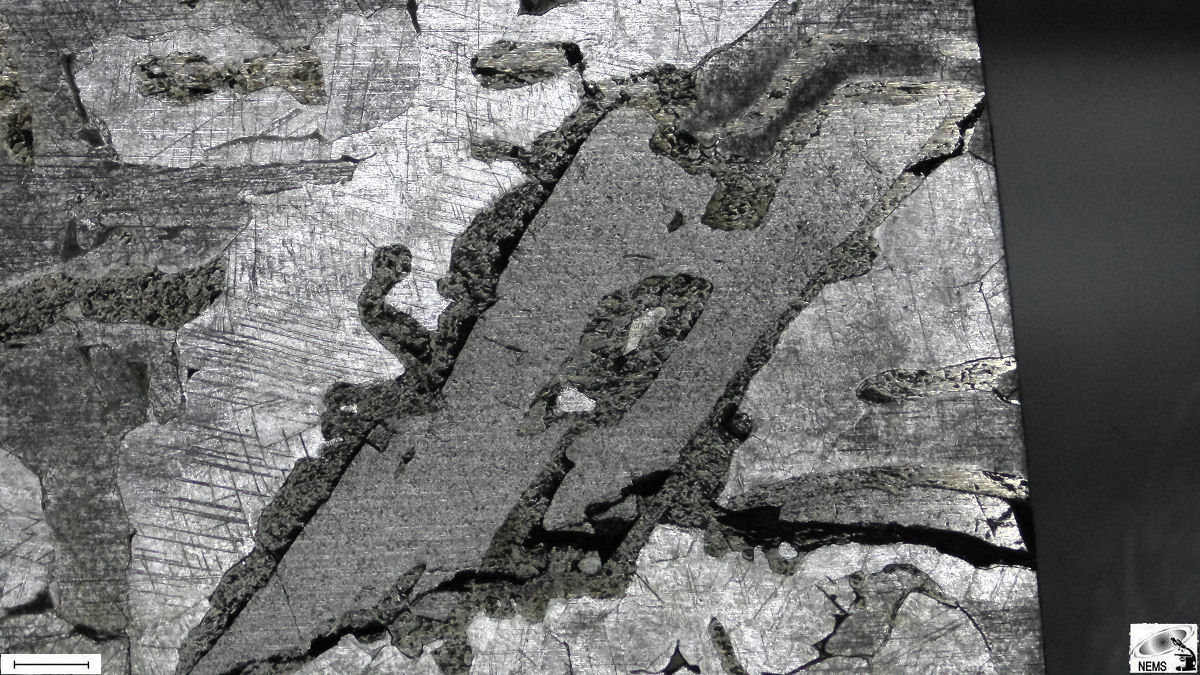
| Meteorite, Deelfontein |
| Classification, Iron, IAB-MG |
| Neumann lines, deformed, shock-melted troilite, the graphite has a unidirectional texture, severly corroded cohenite. |
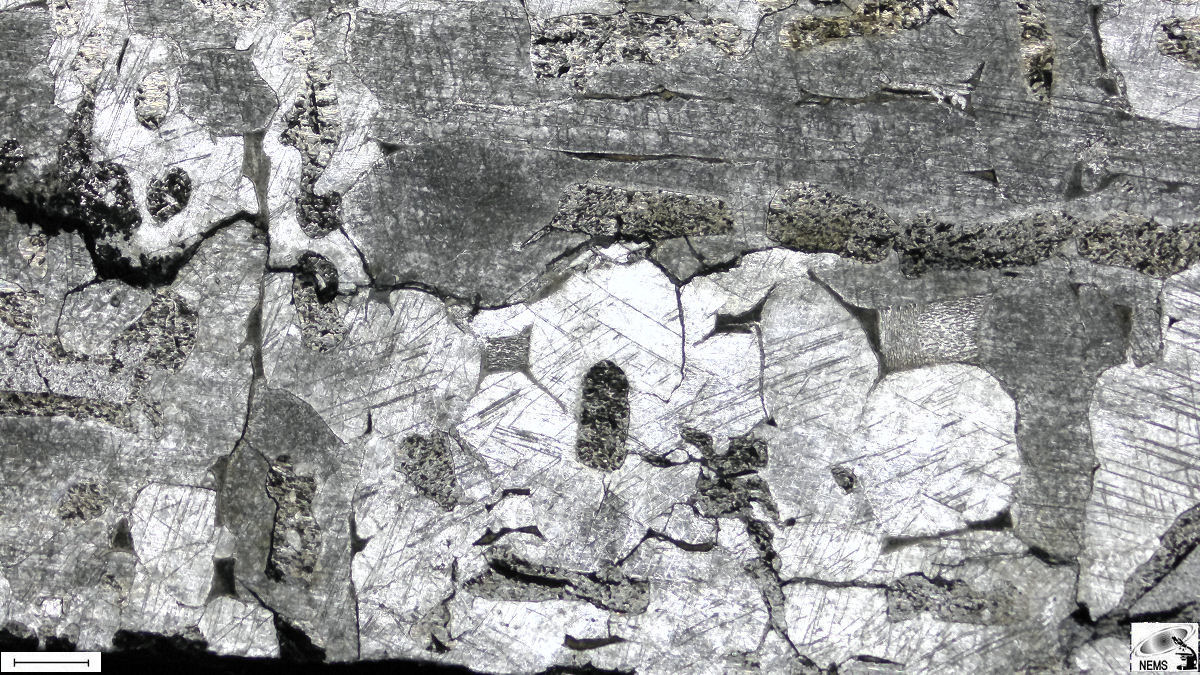
| Meteorite, Deelfontein |
| Classification, Iron, IAB-MG |
| Neumann lines, deformed, shock-melted troilite, severly corroded cohenite, rhabdites. |
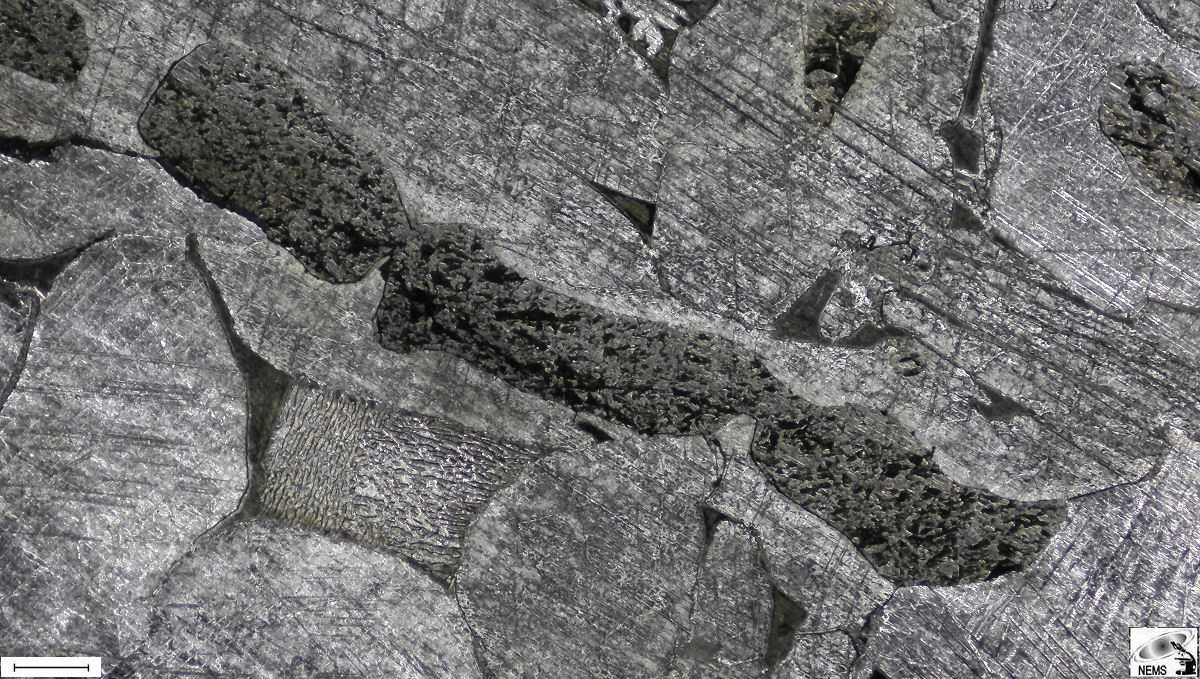
| Meteorite, Deelfontein |
| Classification, Iron, IAB-mg |
| Elongated decomposing cohenite inclusion. |
| Return to Contents |